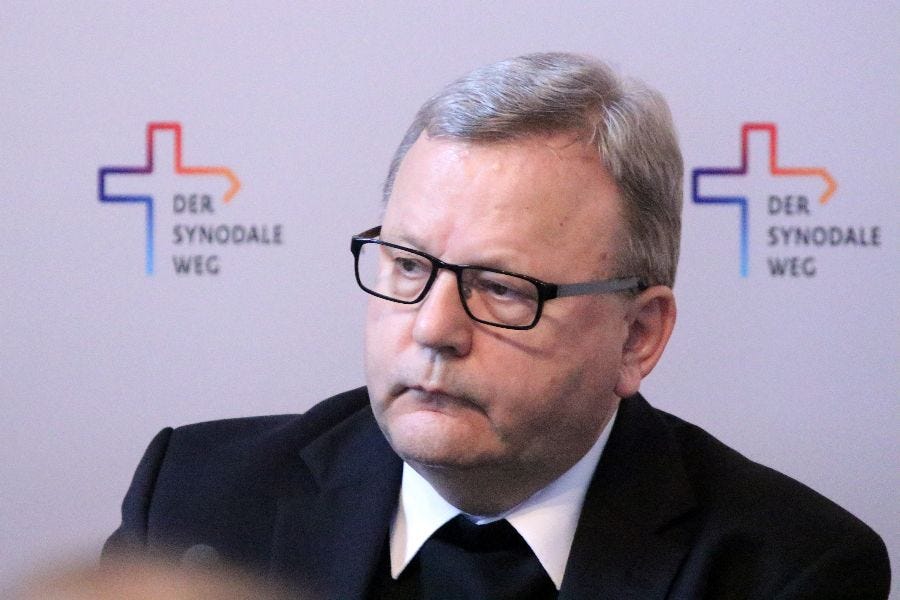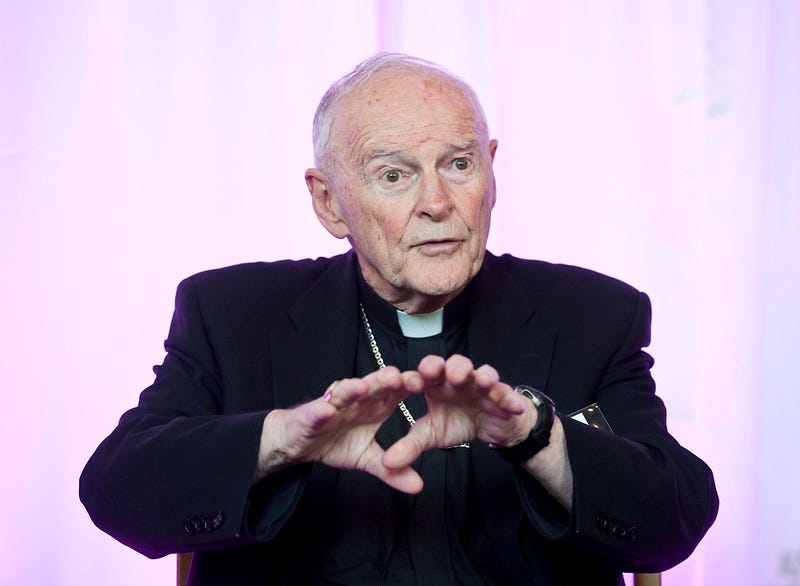
The Vatican has received a canonical complaint against Bishop Franz-Josef Bode, the vice president of the German bishops’ conference, concerning the bishop’s handling of abuse cases in the Diocese of Osnabrück. The bishop has said he now expects to face a Vatican investigation.
A spokesman for the Archdiocese of Hamburg confirmed that Archbishop Stefan Heße received the complaint against Bode on Dec. 8, reported Katholisch.de, the German Church’s official website.
Bode has led the Osnabrück diocese since 1995, is Germany’s longest-serving diocesan bishop, and was elected deputy chairman of the German bishops’ conference in 2017.
As the metropolitan archbishop, Archbishop Heße is responsible for forwarding reports to the Holy See under the 2019 motu proprio Vos estis lux mundi, promulgated by Pope Francis after a global summit of the world’s bishops to consider the Church’s response to a range of scandals over episcopal accountability in the handling of abuse cases.
The Hamburg archdiocese said that Archbishop Heße sent the complaint on Dec. 9 to the Vatican Dicastery for the Doctrine of the Faith and Dicastery for Bishops via the apostolic nunciature in Germany.
The complaint was made by the joint victims’ advisory council of the dioceses of Hamburg, Hildesheim, and Osnabrück. It drew on a damning report on the handling of cases in the Osnabrück diocese released in September.
The 600-page interim report, prepared by the University of Osnabrück, accused Bishop Bode of negligence. The bishop accepted the report’s criticisms at the time, but said that he would not resign because he wanted to oversee the process of strengthening safeguarding procedures in the Diocese of Osnabrück.
Bode said on Dec. 12: “I respect this step of the victims’ advisory council and support the investigation by the Roman authorities that has thus been initiated.”
“In addition to the excerpts already described by the council, I will forward to the responsible dicasteries in the Vatican the entire interim report that the University of Osnabrück has prepared on behalf of our diocese. I will, of course, face the outcome of this investigation.”
The bishop added that he was committed to seeking dialogue with abuse survivors in his diocese and with members of the advisory council, “to continue and further improve the path of reappraisal.”
The victims’ advisory council argued in a Dec. 12 press release that “Bishop Bode has acted contrary to clear papal guidelines.”
“We find it very difficult to see Bishop Bode as a counterpart who is committed to honest and consistent addressing of sexual abuse by members of the Catholic Church,” the council said.
“What personal consequences Bishop Bode draws, he must decide for himself. We do not share his position, expressed at the press conference on the report, that a resignation would delay the positive process in his diocese and that essential points could not be set.”
Bishop Bode is one of the four members of the executive committee overseeing Germany’s controversial “synodal way.” He took part in the German bishops’ ad limina visit to Rome in November. The bishop has also gained international attention for his support of female deacons and blessings for same-sex couples.
The 71-year-old bishop has faced growing criticism in his diocese in northwestern Germany since the interim report was issued.
At a press conference following the initial publication of the interim report, Bishop Bode said that he had discussed whether to resign with Fr. Hans Zollner, S.J., a prominent member of the Pontifical Commission for the Protection of Minors and the director of a Vatican think tank on child protection issues.
Bode appeared to suggest that Fr. Zollner had supported his decision to remain in post, but a diocesan spokesman later clarified that Fr. Zollner “spoke neither for nor against the bishop's resignation.”
In an interview with the Evangelical Press Service last week, Bishop Bode acknowledged that trust in him had been shaken. He said: “Even priests ask me, why don’t you resign?”
In the past two years, several German dioceses have published independent reports on the handling of clerical abuse cases, dating back decades, including the Archdiocese of Cologne, the Archdiocese of Munich and Freising, and the Diocese of Münster.
Other dioceses have commissioned reports, such as the Diocese of Essen, the Archdiocese of Freiburg, the Diocese of Mainz, the Diocese of Passau, and the Diocese of Trier.
In the wake of the reports, several senior German bishops have offered their resignations to Pope Francis in the past two years. They include Hamburg’s Archbishop Heße — who is responsible for referring the complaint against Bode to Rome — as well as Cologne’s Cardinal Rainer Maria Woelki, and Munich Cardinal Reinhard Marx. The pope has so far declined to accept the resignations.
The Neue Osnabrücker Zeitung reported that Bode angered local Catholics during a meeting in the municipality of Spelle last month when he said there were “only 10 cases” during his 27-year tenure as bishop of Osnabrück.
Meeting participants accused him of trivializing abuse, but a diocesan spokesperson insisted that he wasn’t “playing down the subject of sexualized violence in any way.”
Since the promulgation of Vos estis in 2019, several American diocesan bishops have faced Vatican-ordered investigations into allegations that they mishandled or otherwise failed to properly deal with accusations of clerical sexual abuse.
In the United States, nearly a dozen probes have been initiated under the papal norms, leading to different outcomes.
Bishop Michael Hoeppner of Crookston, Minnesota, was the first bishop to be investigated under the aegis of Vos estis lux mundi; Bishop Hoeppner resigned from office in April 2021, after a probe of more than 18 months into serial administrative misconduct and cover-ups.
Three other bishops, Robert Guglielmone, Nicholas DiMarzio, and John Brungardt, were cleared after Vos estis investigations into allegations of abuse.
Vatican investigations into several other U.S. bishops remain ongoing.
Despite repeated calls for more transparency in the process created by Vos estis, which usually sees accusations against a bishop investigated by the local metropolitan archbishop, the Vatican rarely, if ever, confirms the details of such cases, and is often reluctant to confirm an investigation into a bishop is even underway — a procedure markedly different from the public and transparent handling of allegations against priests used in the United States.
Several prominent experts and abuse survivors advocates told The Pillar in June that there remains room for improvement in its text and application.




